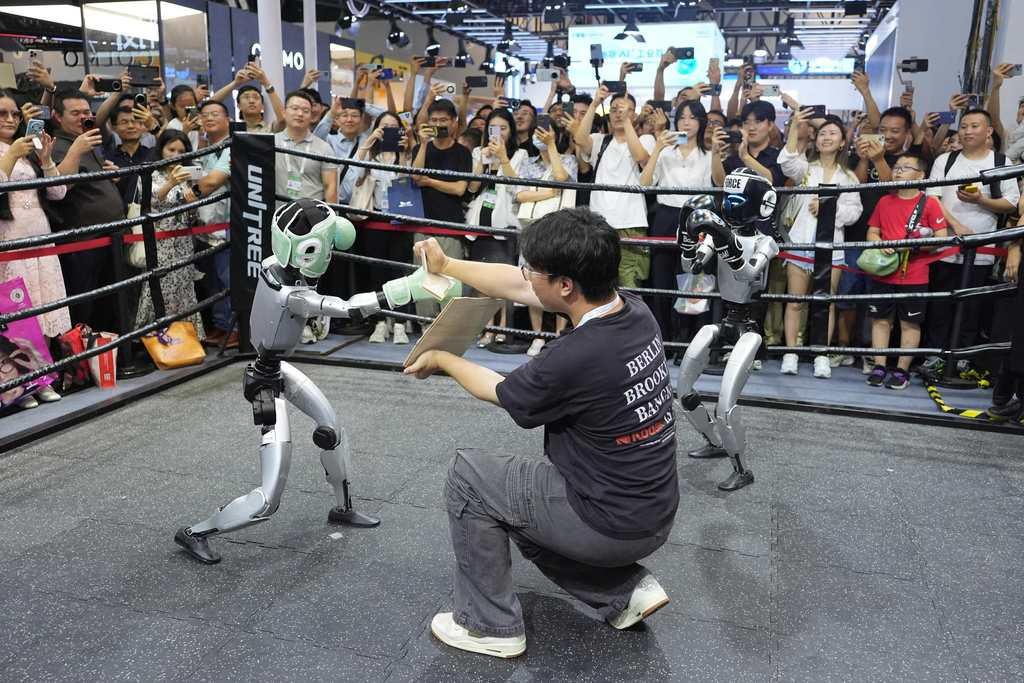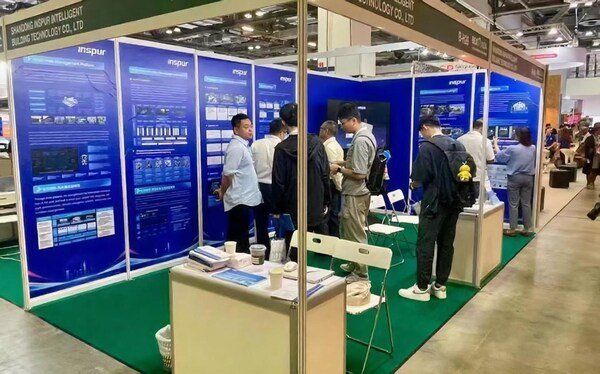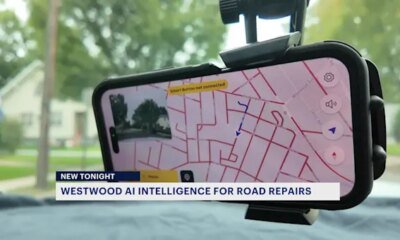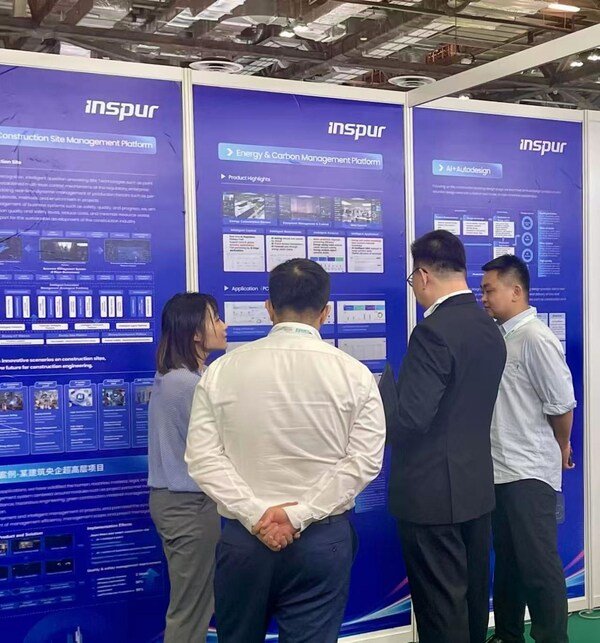Tools & Platforms
Use AI for global prosperity, not for dominance

While artificial intelligence is transforming global economies and societies, some nations want to weaponize this key technology for geopolitical dominance. In contrast, China’s recent initiatives present a constructive alternative.
Late last month, the 2025 World AI Conference& High-level Meeting on Global AI Governance was held in Shanghai, where more than 300 purchase orders with a combined value of roughly 16.2 billion yuan ($2.24 billion) were finalized.
While addressing the event’s opening ceremony, Premier Li Qiang emphasized the need for a collaborative approach to global AI governance to ensure that the technology is developed for the good of all. Accordingly, the Chinese government has proposed the establishment of a world AI cooperation organization as part of its efforts to bolster the open, inclusive and equitable development of AI and effective global governance of the technology.
In an article in the South China Morning Post, Professor Zeng Jinghan of the City University of Hong Kong wrote that “the High-level Meeting on Global AI Governance was not just symbolic”. He contended that China’s initiative stands in stark contrast to the path taken by other powers. The United States’ strategy of maintaining technological supremacy over China reflects a confrontational approach that undermines genuine multilateral cooperation. Rather than advancing inclusive frameworks for responsible AI development, such zero-sum tactics risk fragmenting international standards and impeding collective progress on critical challenges.
Scott Singer, an expert on China’s AI sector at the Carnegie Endowment for International Peace, told the Washington Post that “in China, there is definitely stronger government support for applications and a clear mandate from the central government to diffuse the technology through society”. In contrast, the US has focused more on developing the most advanced AI models while “the application layer has been totally ignored”, said Singer.
In fact, just days after the Shanghai event, China’s State Council executive meeting on Thursday approved guidelines on implementing the “AI Plus” initiative, calling for vigorously advancing the large-scale commercial application of AI and boosting its accelerated popularization and deep integration across various fields of economic and social development.
In an interview with Economic Information Daily, Zhu Minghao, executive director of the high-end manufacturing research center at Beijing Jiaotong University, said that the deeper implementation of the “AI Plus” initiative will enable iterative upgrades in key AI technologies through diverse applications, further enhancing the global competitiveness of China’s AI industry.
Other experts agree. Pan Helin, a member of the Ministry of Industry and Information Technology’s Expert Committee for Information and Communication Economy, told Chinanews.com that the initiative will foster the emergence of diverse AI-powered application scenarios and represents a big boon for China’s AI industry.
Liu Gang, chief economist of the Chinese Institute of New Generation Artificial Intelligence Development Strategies told Shanghai Securities News that AI is reshaping the fundamental logic of economic growth and that China’s advantages in AI application scenarios and technological innovation will gradually translate into industrial competitiveness.
China has taken concrete steps for global AI governance in recent years. In 2023, the country launched the Global AI Governance Initiative to boost the open, fair and inclusive development and governance of AI technologies. The country further proposed the AI Capacity-Building Action Plan for Good and for All in 2024 to help bridge the global AI divide and foster inclusive and balanced global development. These efforts demonstrate China’s dedication to creating a balanced and mutually beneficial global AI ecosystem.
Is AI to be a race for dominance or a platform for global progress? China has made its answer clear.
Tools & Platforms
Shandong Inspur Intelligent Building Technology Showcases AI-Driven Solutions at BEX Asia 2025

SINGAPORE, Sept. 11, 2025 /PRNewswire/ — Shandong Inspur Intelligent Building Technology Co., Ltd. (“Inspur Intelligent Building”), a leading provider of smart building solutions, took center stage at BEX Asia 2025, unveiling its latest advancements in AI-powered smart building systems. Organized by leading global event management company Reed Exhibitions, the exhibition opened on September 3, 2025, at the Marina Bay Sands Expo & Convention Centre in Singapore.
As one of the largest specialized building and construction exhibitions in Southeast Asia, this year’s edition introduced an innovative “four-in-one” exhibition format, co-locating InnoBuild, MCE Asia, and Smart Cities & Building Asia. Centered around the core themes of “Productivity, Sustainability, Energy Efficiency, and Intelligence”, the integrated events brought together resources from across the construction ecosystem to build a professional platform for technology exchange, trend exploration and partnership development.
BEX Asia 2025 attracted over 3,000 global leaders, entrepreneurs, and policymakers across more than 150 exhibition booths. During the event, industry frontrunners expressed strong interest in fostering dialogue on innovation and accelerating the transition to a more sustainable and connected built environment. As a leader in smart building transformation, Inspur Intelligent Building showcased its latest breakthroughs and real-world applications in the integration of artificial intelligence and building technologies, offering scalable, future-ready solutions for developers, owners, and operators.
At the exhibition, Inspur Intelligent Building showcased its integrated applications of AI across the building lifecycle:
- Modular Building Systems: Combining efficient prefabrication, flexible assembly, and intelligent adaptation to deliver cost-effective residential and commercial spaces, reinforcing competitiveness in global markets and the company’s commitment to sustainable building practices;
- AI-Enhanced Design Automation: Enabling human-machine collaboration to standardize and streamline construction design processes;
- Intelligent Site Management Platform: Incorporating AI-powered image recognition, advanced query tools, building information modeling (BIM), and point-cloud imaging to enable real-time project monitoring and precision management of project resources;
- Smart Living Solutions: Delivering a unified IoT platform for whole-home connectivity and intelligent automation, enhanced by large AI models to create personalized occupant experiences;
- Sustainable Building Technologies: Offering a cloud-edge product suite including AI-driven energy optimization, energy and carbon management platforms, and AI edge workstations, designed to help clients reduce energy use and carbon footprint.
Throughout the exhibition, visitors from Singapore, Europe, Southeast Asia and other global markets engaged with Inspur Intelligent Building’s technical team to explore its comprehensive portfolio for AI-assisted design, green building systems, energy and carbon management platforms, smart campus and industrial park systems, intelligent construction sites, and prefabricated steel structures. Live demonstrations and case studies illustrated the company’s engineering expertise and real-world applications, earning positive recognition from industry partners.
This first appearance at BEX Asia 2025 marked an important milestone in Inspur Intelligent Building’s international expansion and opened new growth opportunities in Southeast Asia. Looking ahead, the company plans to continue investing in R&D for AI-enabled smart building technologies, grow its solution ecosystem, and accelerate international growth—supporting the digital, intelligent, and sustainable transformation of the built environment worldwide.
Source: Shandong Inspur Intelligent Building Technology Co., LTD.
Tools & Platforms
China Telecom Global Shines at the 10th Belt and Road Summit, Empowering the New Silk Road via AI for Good
HONG KONG, Sept. 10, 2025 /PRNewswire/ — From September 10 to 11, 2025, the 10th Belt and Road Summit was successfully held at the Hong Kong Convention and Exhibition Centre. China Telecom Global (CTG) participated prominently under the theme “Empowering the New Silk Road via AI for Good,” highlighting three core areas: the OneGrowth Global Partnership Initiative, AI global capabilities, and AI-driven applications. Through multiple benchmark cases, interactive scenarios, and physical displays, the exhibition systematically presented China Telecom’s cloud-network-intelligence-computing resource deployment and innovative AI applications along the Belt and Road, fully demonstrating its comprehensive strength and firm commitment to promoting regional collaborative development through digital technologies.
On the first day of the event, Ms. Wu Ting, AI Director of China Telecom Global, delivered a keynote speech titled “China Telecom Global: AI Blueprint and Capabilities”. She comprehensively presented CTG’s AI capabilities and architectural framework, highlighting a series of innovative achievements and practical applications in artificial intelligence. These included several cutting-edge AI products such as the OneTouch AI Engine, LLM Guardrail Platform, Enterprise No Code Agent Platform, and more, demonstrating CTG’s leading strength in artificial intelligence research and development and industrial application. Additionally, leveraging multiple demonstrated cases, she provided in-depth insights into CTG’s competitive advantages in building international digital infrastructure and delivering intelligent solutions for enterprises expanding globally.
At the summit, CTG featured a range of interactive highlights centered on its OneGrowth Global Partnership Initiative and global AI capabilities, comprehensively demonstrating its strength in AI+ technologies and ecosystem collaboration.
Empowering AI, Intergrow as One: Co-creating a New Digital Ecosystem
In the ” OneGrowth Global Cooperation Initiative” section, CTG highlighted its recently launched cooperation plan with a focus on three key ecological directions: AI+ Intelligent Empowerment, AI+ Comprehensive Mobile Global Cooperation, and AI+ Innovative Business, all guided by the four core principles of co-creation, sharing, co-governance, and win-win. The AI+ Intelligent Empowerment initiative is developing a global ecosystem computing power scheduling platform that integrates intelligent and general computing services while collaborating with partners to build scenario-based digital enablement platforms. The AI + Comprehensive Mobile Global Cooperation leverages a multidimensional mobile network covering “land-sea-air-space,” promoting cooperation in 5G, satellite communications, and Internet of Vehicles (IoV). Meanwhile, AI+ Innovative Business featured collaborations in visual network, exemplified by the transnational SeeLink Global Platform, which integrates AI algorithms, devices, cloud services, and applications to provide end-to-end solutions tailored to diverse customer needs.
Application in Action, Leadership in Intelligence, Interactive Demos Showcasing Technological Strength
In the “AI Global Capabilities” section, beyond showcasing its global digital infrastructure, the exhibit provided a clear overview of its resource network—including 53 submarine cables, 251 international PoPs (Points-of-Presence), and 15 overseas data centers. It also highlighted the capabilities and advantages of two major computing power engines: the AI data centers in Tseung Kwan O, Hong Kong, China and Jakarta, Indonesia. These demonstrate CTG’s core strength in reinforcing the foundation of the “Digital Silk Road” and supporting regional enterprises through digital transformation.
CTG prominently spotlighted its AI solutions and benchmark cases, including 5GC scenario applications and low-altitude economy service system. Through global applications such as supporting Chinese automotive companies expanding into Europe and assisting game developers in global operations, CTG demonstrated its deep practical achievements across Belt and Road markets. These cases underscore the company’ leading strength in driving industrial digital transformation and facilitating the global expansion of services.
Meanwhile, at the AI interactive experience and physical exhibition zone, CTG featured engaging activities such as AI-powered opera face-changing, a 5GC-enabled robotic dog, and the Tianshu drone. By seamlessly integrating traditional culture with cutting-edge artificial intelligence, CTG vividly demonstrated its innovative capabilities and technological expertise in cutting-edge fields such as 5G, AI, the Internet of Things, and the low-altitude economy. The interactive displays attracted extensive on-site participation and drew significant audience engagement.
During the summit, CTG engaged in on-site discussions with customers and partners from around the world to explore new opportunities within the Belt and Road digital economy. Moving forward, CTG will continue to leverage its strengths in cloud-network resources, AI technologies, and global services to provide efficient and reliable digital solutions for countries and regions along the route, further advancing the development of the “Digital Silk Road” to new heights.
Through its participation, CTG has fully demonstrated its capabilities as a world-class provider of digital-intelligent technology services in resource integration, technological innovation, and ecosystem influence. This exhibition underscored the company’s firm commitment to empowering high-quality development along the Belt and Road and co-creating a smart future through technological innovation.
SOURCE China Telecom Global

Tools & Platforms
OpenAI to Launch AI-Powered Jobs Platform — Campus Technology
OpenAI to Launch AI-Powered Jobs Platform
OpenAI announced it will launch an AI-powered hiring platform by mid-2026, directly competing with LinkedIn and Indeed in the professional networking and recruitment space. The company announced the initiative alongside an expanded certification program designed to verify AI skills for job seekers.
The OpenAI Jobs Platform will use artificial intelligence algorithms to match candidates with employers based on demonstrated AI competencies rather than traditional resume keywords. The platform targets businesses seeking workers proficient in automation, prompt engineering, and AI implementation across various industries.
OpenAI is collaborating with major employers, including Walmart and Boston Consulting Group, to develop the platform’s functionality. Walmart, the largest private employer in the United States with 1.6 million workers, will initially provide free certification access to all US employees.
The Texas Association of Business plans to use the platform to connect local employers with candidates capable of supporting IT modernization projects, according to OpenAI’s announcement.
The company is expanding its OpenAI Academy, a free learning platform that has reached over two million users, to offer formal AI certifications. The program will cover skills ranging from basic workplace AI applications to advanced prompt engineering techniques.
Training and certification testing will occur within ChatGPT’s Study Mode, allowing candidates to prepare and complete credentials without leaving the application. OpenAI aims to certify 10 million Americans by 2030.
The initiative positions OpenAI against established players in the professional networking market. LinkedIn maintains over one billion members globally, while Indeed processes 27 hires per minute with 615 million registered job seekers.
The platform also competes with LinkedIn Learning’s educational offerings, potentially creating tension with Microsoft, OpenAI’s primary investor, with a reported $13 billion stake. Microsoft has previously identified OpenAI as a competitor in specific business segments despite their partnership.
Labor market data support OpenAI’s focus on AI competencies. Research by Lightcast analyzing over one billion job postings found that positions requiring AI skills offer salaries averaging 28% higher than comparable roles without such requirements. Jobs demanding multiple AI skills command premiums up to 43% above standard compensation levels.
The demand spans industries as companies integrate artificial intelligence into operations for task automation, data analysis, and product development. Employers increasingly seek workers capable of practical AI application rather than advanced technical programming skills.
The platform will allow employers to describe requirements in natural language, with AI systems identifying candidates who demonstrate relevant capabilities through portfolio work and practical experience. This approach differs from traditional keyword-based matching systems used by existing job platforms.
OpenAI’s system aims to surface candidates based on actual project experience and demonstrated competencies rather than resume optimization techniques commonly used on current platforms, the company said.
About the Author
John K. Waters is the editor in chief of a number of Converge360.com sites, with a focus on high-end development, AI and future tech. He’s been writing about cutting-edge technologies and culture of Silicon Valley for more than two decades, and he’s written more than a dozen books. He also co-scripted the documentary film Silicon Valley: A 100 Year Renaissance, which aired on PBS. He can be reached at [email protected].
-

 Business2 weeks ago
Business2 weeks agoThe Guardian view on Trump and the Fed: independence is no substitute for accountability | Editorial
-
Tools & Platforms4 weeks ago
Building Trust in Military AI Starts with Opening the Black Box – War on the Rocks
-

 Ethics & Policy2 months ago
Ethics & Policy2 months agoSDAIA Supports Saudi Arabia’s Leadership in Shaping Global AI Ethics, Policy, and Research – وكالة الأنباء السعودية
-

 Events & Conferences4 months ago
Events & Conferences4 months agoJourney to 1000 models: Scaling Instagram’s recommendation system
-

 Jobs & Careers2 months ago
Jobs & Careers2 months agoMumbai-based Perplexity Alternative Has 60k+ Users Without Funding
-

 Podcasts & Talks2 months ago
Podcasts & Talks2 months agoHappy 4th of July! 🎆 Made with Veo 3 in Gemini
-

 Education2 months ago
Education2 months agoMacron says UK and France have duty to tackle illegal migration ‘with humanity, solidarity and firmness’ – UK politics live | Politics
-

 Education2 months ago
Education2 months agoVEX Robotics launches AI-powered classroom robotics system
-

 Funding & Business2 months ago
Funding & Business2 months agoKayak and Expedia race to build AI travel agents that turn social posts into itineraries
-

 Podcasts & Talks2 months ago
Podcasts & Talks2 months agoOpenAI 🤝 @teamganassi






















